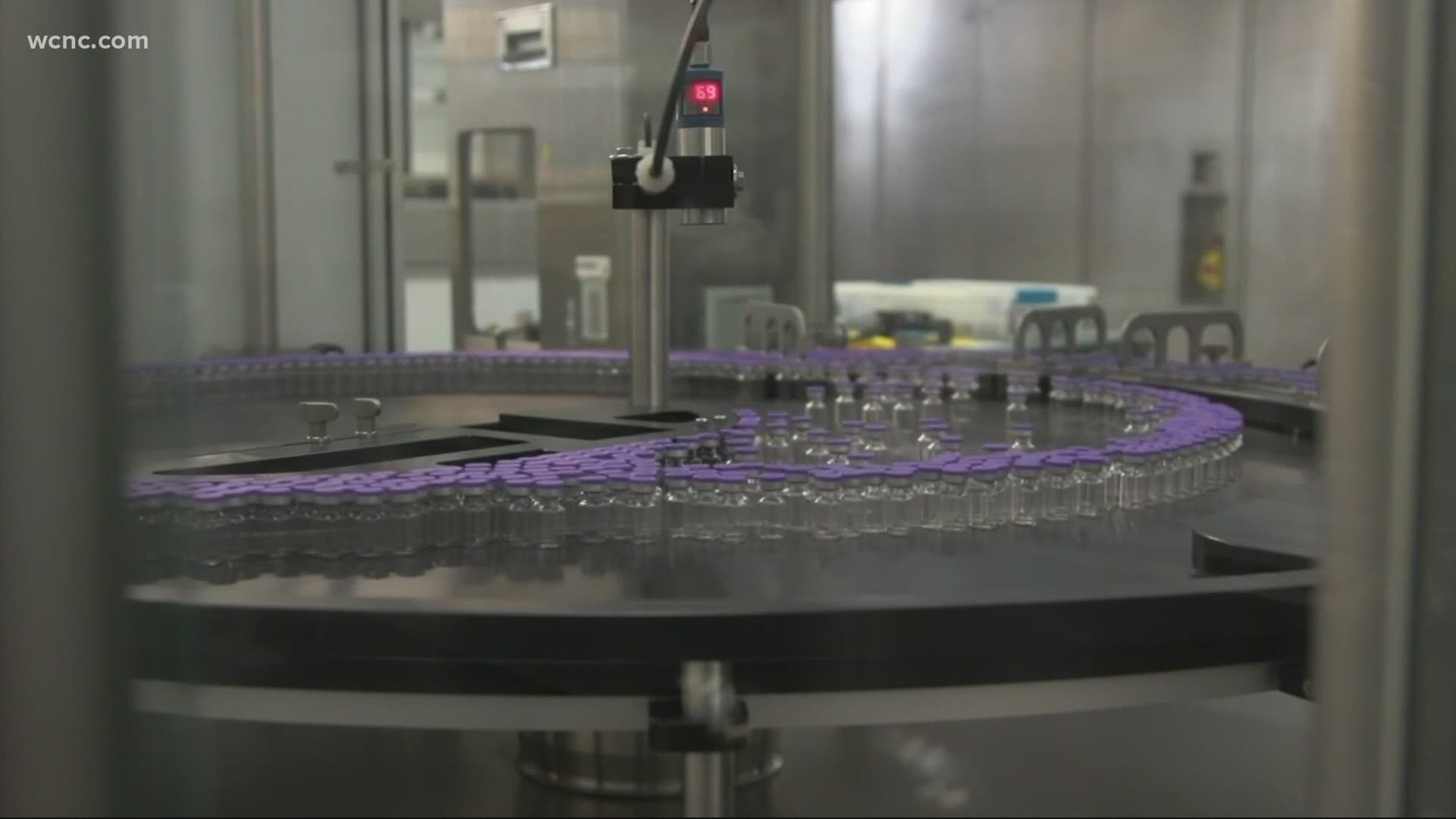CHARLOTTE, N.C. — International studies are showing promising results about the Pfizer vaccine.
It was already known that the vaccine protects against severe illness, but the big question is does it also help prevent spread? Now, there’s growing evidence the answer is yes. Preliminary data from the UK and Israel found people who are vaccinated are less likely to spread COVID-19.
Local medical experts say the results are promising, but more information is still needed, and the health recommendations stay the same.
WCNC Charlotte turned to several sources to learn more about whether the vaccine prevents spread, including the Siren Study composed of several organizations in the UK, another study out of Israel, and Dr. Meg Sullivan, Mecklenburg County’s medical director.
Randy Dean said after getting the Pfizer vaccine, she feels protected.
“I’m just thrilled I could get a vaccine,” said Dean.
However, since she lives in North Carolina, she still doesn’t know if it’s safe for her to travel to Pennsylvania to visit her family.
“We want to walk in, hug everyone, play with the baby, and I am not quite sure that I won’t pick up something up along the way and give it to them,” said Dean.
The initial clinical studies showed the vaccine protects people from severe illness but does it also prevent those carrying COVID 19 from spreading it? Preliminary data from studies in the UK and Israel suggest the vaccine may also prevent transmission.
The UK study estimated the shot’s effectiveness against infection is “at least 70% 21 days after the first dose, increasing to at least 85% seven days after the second dose.”
According to a study out of Israel, “the viral load is reduced 4 fold for infections occurring 12-28 days after the first dose of vaccine. These reduced viral loads hit to lower infectiousness, further contributing to the vaccine impact on virus spread.”
“It’s always exciting to look at,” said Dr. Meg Sullivan, medical director Mecklenburg County.
However, Dr. Sullivan says it still doesn’t fully answer the question about whether the vaccine prevents infection.
“I think promising data, but not enough to change anyone’s recommendations about still adhering to all public health guidance even if they’ve been vaccinated,” said Dr. Sullivan.
“It gives me a little more hope,” said Dean.
However, Dean says she’s still not comfortable enough to see her family in person, but she’s glad scientists are closely studying the vaccine impacts.
“The more science the better,” said Dean. “I’m so glad people like you report on these as much as possible so we can know the truth.”
Dr. Sullivan says she expects a lot more data about whether the vaccine prevents spread in the coming months.

